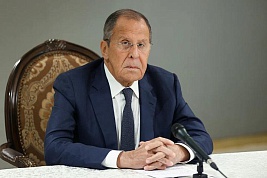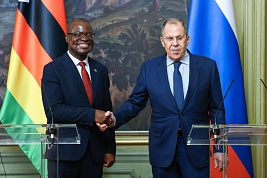Speech by Russia’s Permanent Representative to the United Nations, Vitaly Churkin, at the session of the UN General Assembly, New York, 27 March 2014
Mr Chair,
An event of a truly historical nature took place on the 21 March. Crimea and the Russian Federation re-united as a result of the referendum in Crimea, during which the overwhelming majority of the population voted to bewith Russia.
We appeal to everybody to respect this free choice, as Russia did because we could not refuse the Crimeans,by supporting their right to self-determinationand making their old expectations come true.
Historical justice has triumphed. For ages Crimea has been an integral part of our country, we share history, culture and, the main thing, people. And only the voluntaristic decision by the USSR leaders in 1954, which transferred Crimea and Sevastopol to the Ukrainian Republic, although within one state, has distorted this natural state of affairs. After the breakdown of the USSR it has become known that Crimea was cut off "alive"from Russia. In 1992 the Crimeans adopted a Constitution, which defined Crimea as an independent state within Ukraine. However, very soon this Constitution was changed by Kiev without Crimean consent, but the status of the peninsula was degraded to an autonomous republic within the Unitarian Ukrainian state.
Crimeans have never put up with their destiny by openly demonstrating their fellow-feelings for Russia. The lid came off, when a deep political crisis overtook Ukraine. It was a crisis provoked mainly by opportunistic actions of external forces, which intended to break age-old ties uniting Ukraine and Russia, throwing Kiev into a dilemma: the European Union, the West or Russia. And this policy was pursued with unprecedented obtrusiveness. They started to request the signature of the European Union Association Agreement from the Ukrainian authorities under the threat of sanctions. Ministers and other representatives of the European Union and the United States marched openly among anti-government demonstrators. They also made provocative appeals for anti-government actions from speaker's stands. The central square of the city (Maidan) was turned into a military camp. Well-prepared and equipped units of militants attacked law enforcement forces and occupied administrative buildings. In one of them (the House of Trade Unions), the so-called command post of the Maidan was organised, and a headquarters of the US Embassy operated constantly on the seventh floor of this building. Incidentally, sniper shooting both on representatives of law enforcement agencies and on demonstrators, the purpose of which was to provoke a change of power by force, was organised from this building.
Once, it seemed that it would be possible to stop it before passing the point of no return. On the 21 February President Yanukovich and leaders of the main opposition parties signed an agreement envisaging the disarmament of militants, the freeing of occupied administrative buildings, the creation of a national unity government, the launch of the constitutional process and the organisation of presidential elections by the end of this year. However, such a scenario has not seemed sufficiently radical to some people. The atrocities have continued. President Yanukovich was forced to leave Kiev and then Ukraine under the threat of physical reprisal. Legitimate authorities ceased to exist in Kiev. Violence became a norm of political life. Parties making up the parliamentary majority, which supported Yanukovich, became the target in the Verkhovna Rada. As a result of this, Rada was reshaped and the so-called "government of champions" rather than the national unity government, appeared. Those, who organised the coup, national radicals having "racist, anti-Semitic and xenophobic views", as the European Parliament defined them, hating everything Russian, not hiding that they considered Ukrainian supporters of Nazis their ideological ancestors, called the tune there.
One of the first decisions of the new authorities was the cancellation of the official status of Russian, which was used by the overwhelming majority of Crimeans and the population of the eastern and south-eastern regions of Ukraine. Kiev started to appoint governors to these regions of the country, who were rejected by the population. Direct threats to send the so-called "trains of friendship", i.e. groups of militants, who would continue the atrocities committed in Kiev and several western and central regions of Ukraine, were addressed to Crimea.
This was the critical mass, which has led the Crimeans to the rescue decision about self-determination and unity with Russia. One would have to be a misanthrope to rebuke them because of that.
Mr Chair,
In view of these reasons Russia is negative about the General Assembly'sproposed draft resolution. It is confrontational. This draft intends to put the significance of the referendum in Crimea, which has already played its historical role, in doubt. It is counter-productive to dispute it.
At the same time, we note that this draft contains some correct statements. For example, the appeal to refrain from unilateral actions and inflammatory rhetoric, which may lead to the escalation of tensions. We believe that no resolutions are necessary to heed this appeal. We just need to be guided by the interests of the Ukrainian people, the interests of the normal flow of international relations. We hope that this understanding will prevail during our discussiontoday, and the ongoing dialogue around Ukraine. Russia participates in it most constructively. Our advice is simple: the principled agreements of the 21 February should be implemented. Ukraine needs a true constitutional process with the participation of all the civilised political forces and all regions, which would lead to the creation of conditionssuch that people do not tremble for their lives and can be sure of the enforcement of their fundamental rights.


